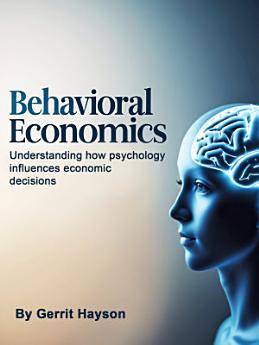Behavioral Economics: Understanding How Psychology Influences Economic Decisions
About this ebook
Yet anyone who has ever made an impulse purchase, chosen the familiar brand over a cheaper alternative, or felt buyer's remorse knows that human decision-making is far more complex and seemingly irrational than these models suggest. The emergence of behavioral economics as a field represents a revolutionary shift in how we understand economic behavior, one that acknowledges the profound influence of psychology on our financial choices.
The roots of behavioral economics can be traced back to the 1970s when psychologists Daniel Kahneman and Amos Tversky began challenging the assumptions of traditional economic theory. Their groundbreaking work demonstrated that people systematically violate the principles of expected utility theory, making choices that appear irrational when viewed through the lens of classical economics. Rather than dismissing these deviations as anomalies or errors, Kahneman and Tversky recognized them as predictable patterns that could be studied and understood.







